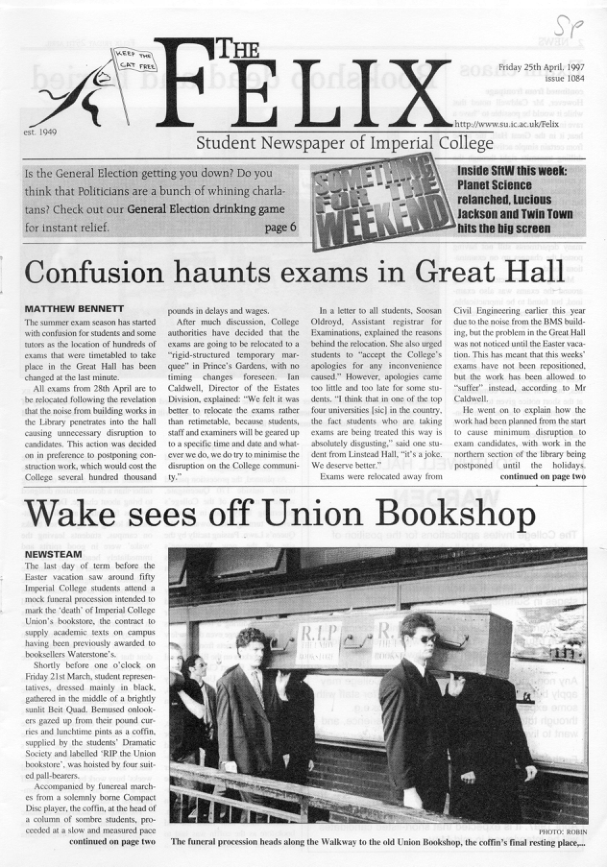Does British science need saving?
Tuesday lunchtime saw representatives from the three major political parties gather for a debate on the future of British science. The meeting, held in the Mechanical Engineering lecture theatre in front of an audience largely consisting of academics, was organised by the Save British Science Society and was aimed at raising public awareness about the current situation of science in this country.
The meeting was opened by the Rector, Sir Ronald Oxburgh, who introduced the three guest speakers: Ian Taylor, the Conservative Minister for Science; Adam Ingram, his Labour counterpart; and Lord Ezra from the Liberal Democrats. They were each allowed five minutes at the beginning to express their views, where Mr Taylor stated that the performance record for science in Britain was good and the three main disciplines of science, engineering and technology are "alive and well". Unsurprisingly the shadow minister for Labour disagreed, claiming that the Conservative party have damaged the science industry which is now in need of drastic improvement. Lord Ezra concurred with Mr Ingram, but also pointed out the necessity of heavy spending.
Although this meeting was not packed with excitement (there were no fist-fights and no one threw a glass of water over anyone else), some interesting points were raised. Two of the more thought-provoking questions were: ‘would the new government be prepared to foot the forecasted Ł1<\!s>billion bill required to get British science back at the forefront of industry?’; and ‘what plans are there to promote science to the younger generation?’. In response to the former, Mr Taylor dismissed the figures as misleading but added that steps have been taken to get industry to invest more. Mr Ingram’s answer was that a problem does not get solved by throwing money at it. For the latter question, a consensus was reached that more had to be done, but the only solution offered was to encourage successful scientists/engineers to make themselves known so that they could act as role models.
Some interesting statistics about science in the UK were given during the debate including the fact that Ł590 million of the government’s total budget goes into research; the percentage of qualified scientists and engineers between 20 and 24 years old is greater than that of most countries including the US; and since the mid 1980s there has been a 60% rise in science-based employment.
At the end of the debate one thing, at least, was clear - Britain would be deficient without a firm science and technology base and if it is to stay in contention with its competitors, these areas would have to become more of a priority to which ever government is in power after the counting stops next Friday morning





